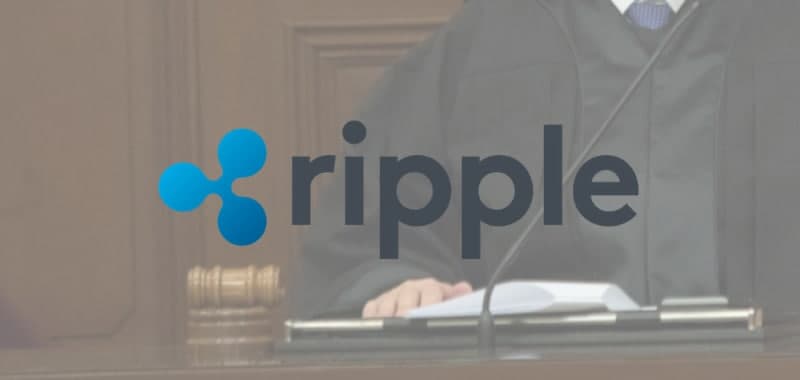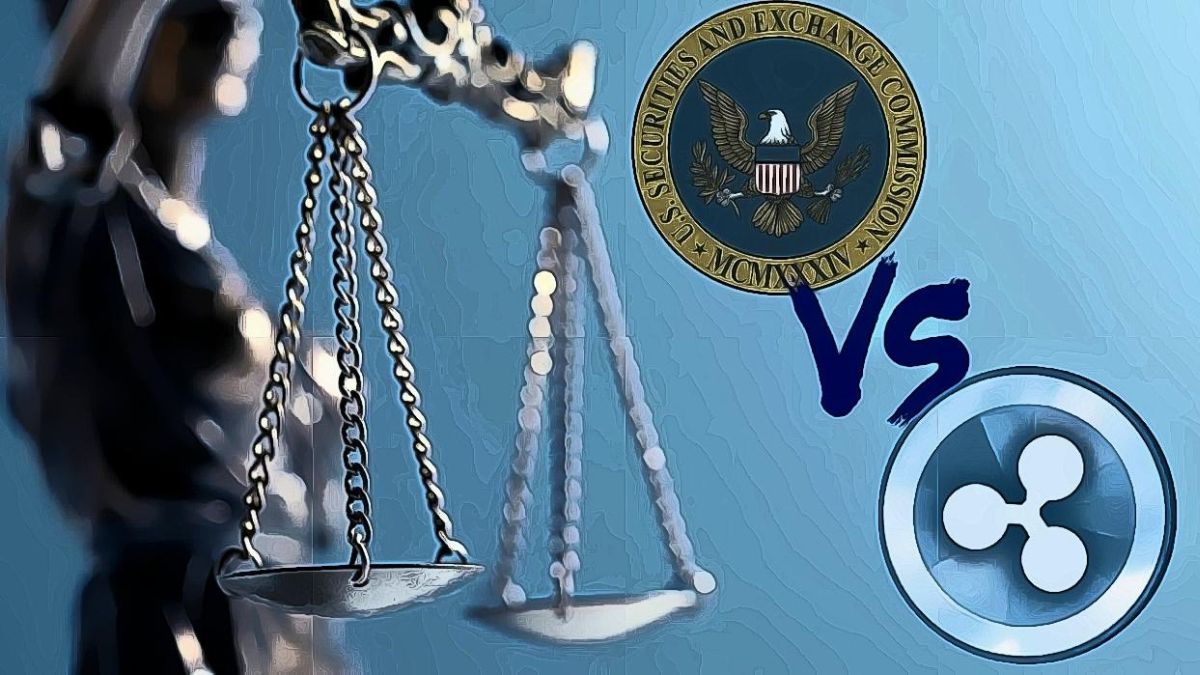Legal
Ripple has evidence that the SEC failed to warn exchanges about the security status of XRP

During today’s pretrial conference, lawyer Matthew Solomon of Cleary Gottlieb, who represents Ripple CEO Brad Garlinghouse, claimed that the Securities and Exchange Commission had failed to warn market actors, including exchanges, about XRP’s securities status in numerous discussions that took place in 2019 and earlier:
“We’ve already taken some discovery on the Securities and Exchange Commission, which revealed that the Securities and Exchange Commission was having discussions with ultra-sophisticated market actors, including exchanges, and not, apparently, telling those actors that it believed XRP was a security or an investment contract as late as 2019. And, again, as this case moves forward, these facts will come to light, and it will be clear that XRP cannot establish and will not establish that XRP is a security”.
Ripple executives want to dismiss the suit
Garlinghouse has already filed a motion to dismiss the lawsuit filed by the Securities and Exchange Commission, according to Solomon.
The attorney denies that the top executive was aiding and abetting Ripple’s sales, an accusation that is at the heart of the SEC’s amended lawsuit, while insisting that his client didn’t know that XRP could potentially be classified as an investment contract:
“The SEC’s allegations establish the opposite of what they purport to do. Mr. Garlinghouse did not know or recklessly disregard that XRP could have been or was investment contract”.
Ripple’s former CEO, Chris Larsen, is represented by Paul Weiss’s Martin Flumenbaum who mentions that his client also wants to raise the same issue in his motion to dismiss.
The SEC prepares to strike Ripple’s defense
The SEC, which is represented by Jorge Gerardo Tenreiro, Jon Daniels, and others, maintains that XRP was offered and sold as an investment contract by the company.
The regulator alerted Federal Judge Analisa Torres that it was “very likely” to file a motion to strike Ripple’s defense. In response, Ripple lawyer Andrew J. Ceresney accused the agency of trying to “cut off discovery”.
Legal
FTX Files Lawsuit Against Sam Bankman-Fried’s Parents in Effort to Recover Funds

The bankrupt cryptocurrency exchange FTX has filed a lawsuit against the parents of Sam Bankman-Fried, the platform’s founder and former CEO, in a desperate attempt to recover funds that are alleged to have been fraudulently transferred and misappropriated. This controversy has shaken the world of cryptocurrencies and has put Joseph Bankman and Barbara Fried in the spotlight, as they now face serious allegations of personal enrichment at the expense of FTX’s customers. Join us in this report as we explore the details of this legal case that has captured the attention of the public and the financial media.
Accusations of Personal Enrichment
A recent Bloomberg report has revealed strong accusations against Joseph Bankman and Barbara Fried, Sam Bankman-Fried’s parents. They are accused of leveraging their privileged access and influence within their son’s cryptocurrency exchange to benefit financially, at the expense of the platform’s customers. This allegedly improper behavior has raised serious concerns and generated controversy within the cryptocurrency community.
Details of the Lawsuit
The lawsuit filed in the United States Bankruptcy Court for the District of Delaware outlines multiple instances in which Bankman-Fried’s parents are alleged to have misappropriated funds belonging to FTX for personal purposes. Among the contested transactions are the purchase of flights and tickets for a Formula 1 Grand Prix in France, as well as millions of dollars in donations to a political action committee (PAC) aimed at supporting the Democrats during the 2020 U.S. electoral cycle.
Bankman’s Influence on FTX
The court filing emphasizes the significant influence that Joseph Bankman is said to have had in various entities related to FTX, including FTX Trading, Alameda, and Alameda Ltd. According to the document, this influence would have granted Bankman a de facto status as an officer, director, and/or manager in each of these companies, raising questions about his role in the operations of the cryptocurrency platform.
Response from the Accused
Lawyers representing Joseph Bankman and Barbara Fried have issued a joint statement in which they describe the lawsuit filed by FTX’s bankruptcy estate as a dangerous attempt at intimidation and a threat to the impending legal process. Furthermore, they have asserted that the accusations against them are “completely false” and they are prepared to vigorously defend their innocence.
In Conclusion
The lawsuit against Sam Bankman-Fried’s parents marks a milestone in FTX’s controversial history and has sparked a debate within the cryptocurrency community about accountability and transparency in the world of cryptocurrencies. As the case progresses through the courts, it will be interesting to closely follow its developments and the potential implications for the future of this platform and the cryptocurrency market as a whole. Stay informed through our regularly updated reports on this evolving topic.
Bitcoin News
Russian Ministry of Finance proposes to regulate cryptocurrencies

The Russian Ministry of Finance submitted to the national government a legislative proposal to regulate cryptocurrencies in the country.
The draft federal law “On Digital Currency” is “aimed at creating a legal market of digital currencies and establishing rules for their circulation and the circle of participants,” the institution reported in an entry on its website.
The legislative proposal also establishes requirements for digital asset exchange platforms and operators in general.
These requirements, which will relate to governance, cover reporting, information storage, internal control and auditing, as well as the risk management system and the amount of own funds.
For this purpose, a special registry of operators will be created and a regulatory body, to be determined by the government, will be in charge of authorizing companies that can carry out such activities. Foreign cryptocurrency platforms will be required to register in Russia in order to obtain a license.
The draft law will also require customers to identify themselves in advance in order to carry out transactions for the purchase and sale of digital currencies.
Deposits and withdrawals of cryptocurrency from the customer to the trader and vice versa will only be possible through banks using a bank account, the proposal says.
For their part, exchanges and banks will have to report any suspicious transactions directly to Rosfinmonitoring, Russia’s Federal Service for Financial Supervision.
In order to protect investors, exchange platforms will be obliged to report on the “high risks associated with the acquisition of digital currencies”.
Customers will also be required to undergo a test before trading cryptocurrencies. Their level on that test will determine the amount they can invest in crypto.
“If they pass the test, citizens can invest in digital currencies up to 600,000 rubles annually [about USD $7,800]. If they fail the test, the investment limit will be capped at 50,000 rubles [USD $600]. Investors and qualified legal entities will be able to conduct transactions without restrictions,” the official document states.
The regulations include other regulations, including requirements for platforms to separate their digital assets from those of clients.
Ministry of Finance will consider Central Bank proposal
The Ministry of Finance indicated that it will consider the Russian Central Bank’s cryptocurrency ban proposal, also the application of sanctions, as long as they do not contradict its own regulatory approach.
The official statement reads:
The proposals received by the Bank of Russia will be taken into account in further work on the draft law to the extent that they do not contradict the approaches of the Russian Ministry of Finance.
The legislative proposal also mentions cryptocurrency mining. According to the document, a legal definition will be created for Bitcoin and cryptocurrency mining, as well as the legal obligation to “inform the tax authorities” about their activities.
Legal
Candidate for the French presidency, Éric Zemmour presents proposals for the cryptocurrency sector

With two months to go before the first round of voting, France’s presidential candidate, Éric Zemmour of the Reconquête political party, presented four proposals that include fiscal reforms for the taxation of digital currencies and NFTs.
The candidate called the burgeoning cryptocurrency space a “sector of the future” and assured that his proposals were meant to boost the ecosystem at the local level.
The politician shared his vision via his Twitter account on Monday, following his visit to the facilities of Ledger, a French firm specializing in cryptocurrency.
“Today I visited Ledger, French leader in cryptoasset security. We must support the cryptocurrency ecosystem, a sector of the future, and here are my proposals:
(1/5)” he said on Twitter.
First, the candidate put forward a tax proposal for cryptocurrencies. He proposed acting on the taxation of cryptocurrencies to encourage their holders to reinvest their capital gains in the “real economy.”
Zemmour also mentioned the growing trend of non fungible tokens (NFTs), and raised a specific tax policy for this sector that focuses on taxing their sale according to their underlying asset; for example, as for the cases of tokenized paintings.
Create an ad hoc tax regime for the taxation of the disposal of NFTs (Non Fungible Token) according to their underlying asset by expressly excluding them from the capital gains regime for digital assets.
He also indicated that he intends to “put an end to the administrative hell for the professionals of the sector” that does not facilitate the distribution of cryptocurrencies by French platforms.
Finally, he expressed his interest in promoting the stablecoins market without waiting for the digital euro project led by the European Central Bank (ECB). In his opinion, the European private sector must take on this development “so as not to leave the monopoly of stablecoins to non-European entities”.
-
Opinion2 years ago
XRP: FOX Business Senior Correspondent Says SEC Is Losing Its Lawsuit Against Ripple
-
Tutorials3 years ago
How to Earn, Farm and Stake CAKE on PancakeSwap with Trust Wallet
-
Altcoins News3 years ago
Projects with ongoing migration from Ethereum to Cardano
-
NFT3 years ago
CardanoKidz: The first NFTs arrive at Cardano
-
Tutorials3 years ago
How to set up a Bitcoin node: beginner’s guide
-
NFT3 years ago
SpaceBudz: new astronaut NFTs on Cardano
-
DeFi News3 years ago
Uniswap vs PancakeSwap: Full analysis
-
DeFi News3 years ago
Liqwid Finance the first DeFi project on Cardano: everything you need to know



















